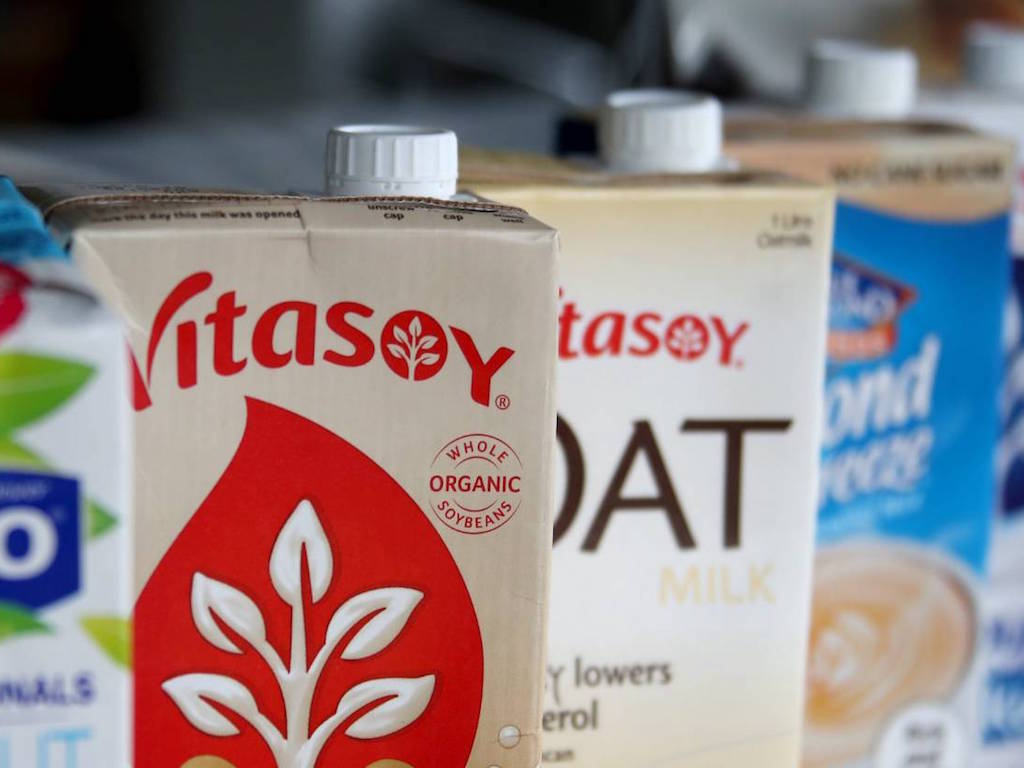3 Mins Read
Hong Kong beverage and catering giant Vitasoy has just launched a pilot scheme to recycle Tetra Pak cartons in local schools in partnership with Secure Information Disposal Services (SSID) and begin educational workshops as a part of a Hong Kong Polytechnic University collaboration. The drinks manufacturer is responsible for almost three quarters of the cartons that end up in Hong Kong’s landfills, so this initiative certainly marks a small step in the right direction. However, without rolling out the campaign across the city and beyond just schools, Hong Kong’s carton waste problem cannot be effectively tackled. The Hong Kong government must also join the fight against waste pollution by developing the necessary infrastructure to support large-scale recycling programs.
Vitasoy has just begun a pilot scheme to reduce Tetra Pak carton waste from ending up in landfills through rolling out Tetra Pak recycling bins, workshops and a mobile education centre. Under this initiative, 75 bins will be placed in schools, and an education truck that promotes recycling will make its way around schools and housing estates. The scheme is launched in partnership with the SSID, which has a waste management facility in Yuen Long. The workshop program, organised in collaboration with the Hong Kong Polytechnic University, seeks to instil recycling habits in youths in the city through upcycling carton activities.
Hong Kong faces a massive waste problem, and while many point to plastic pollution as a major culprit, we also need to look at drink cartons as another major waste contributor to tackle. Due to their aluminium, polythene and paper layers, Tetra Pak cartons require specialist recycling and few of these facilities exist in Hong Kong. Compared to Japan, which has a 45% recycling rate for the cartons, Hong Kong’s number stands at close to zero. This means that most of the cartons in Hong Kong, despite technically being recyclable, ends up in landfills – and Vitasoy are responsible for 74% of drink carton waste, according to local environmental group Green Power.
Speaking about the campaign, CEO of Vitasoy Dorcas Lau said: “I think we always wanted to do something to tackle used paper carton waste in Hong Kong,” but failed to pinpoint whether the scheme will be rolled out beyond schools.
While Vitasoy’s initiative is a step in the right direction, it isn’t enough for local environmental activists who insist that it is not enough to effectively curb Hong Kong’s waste problem. Commenting on the Tetra Pak recycling scheme, a Green Power spokesman said that while they supported the development, they would still “further urge Vitasoy, one of the main beverage and catering giants in the city, to push their recycling job forward and not limit it to schools only.”
Prior to Vitasoy’s announcement, Tetra Pak recycling was predominantly run by local volunteers from environmental groups that have collected cartons and sent it for processing in Thailand. Other organisations have promoted upcycling or repurposing the material, such as using flattened carton boxes to make playing cards or shopping bags.
Vitasoy’s move comes amid a wave of measures across businesses in the city in a bid to appear more environmentally aware. For instance, Swire Pacific Group’s Swire Coca-Cola recently unveiled reverse vending machines for plastic bottles in 10 locations across the city. Watsons have also promoted their “Go Green Initiative”, which plans to set up 100 water refilling machines and 400 plastic bottle collection points across its stores citywide.
While companies are stepping up, the reality remains that the government is slow to act in the fight against waste. According to figures from the Environmental Protection Department (EPD), Hong Kong’s total recycling rate stands at a low 32%. It is not possible for the city to effectively combat waste by simply relying on civil society efforts and business initiatives without the necessary infrastructure. The government must construct more accessible recycling outlets, drop-off points and large-scale recycling facilities, and implement regulations against corporations that do not take up responsibility for the waste they produce.
Lead image courtesy of Cameron Burnell / Stuff.



